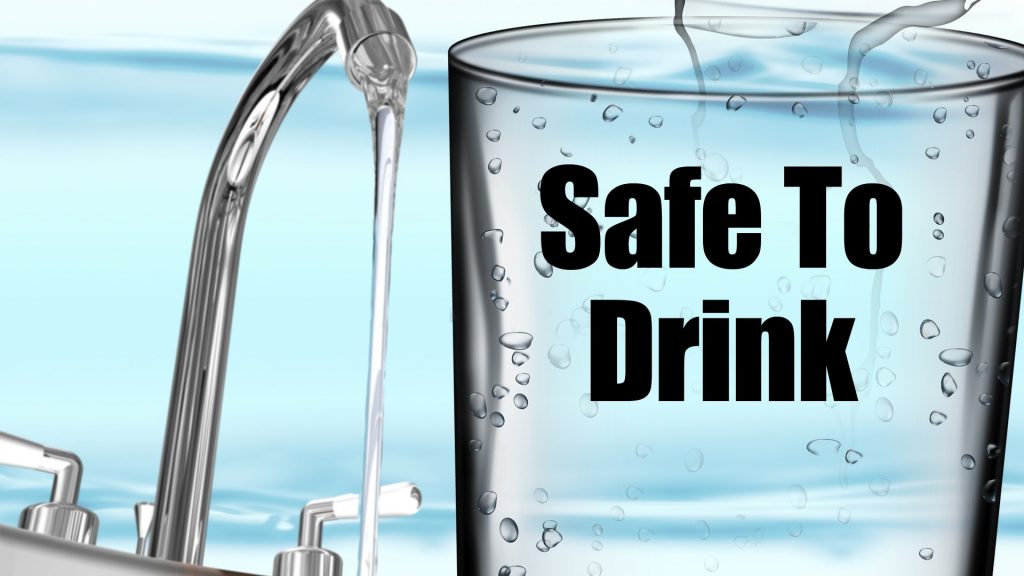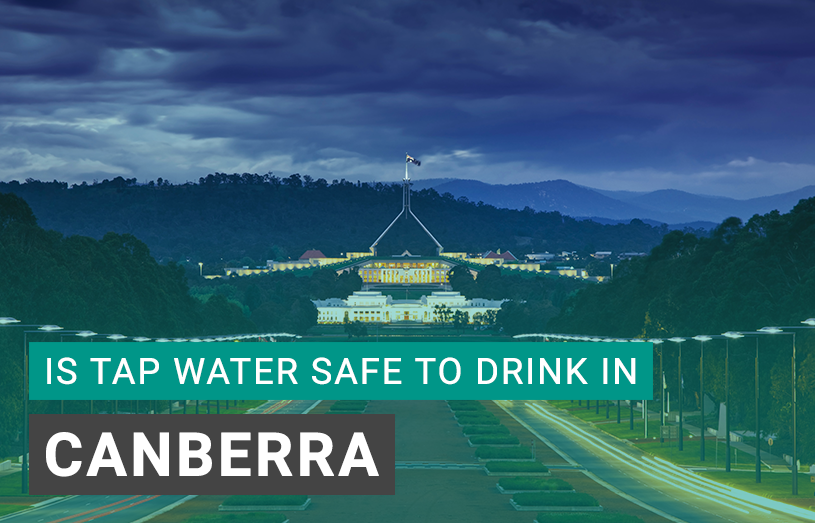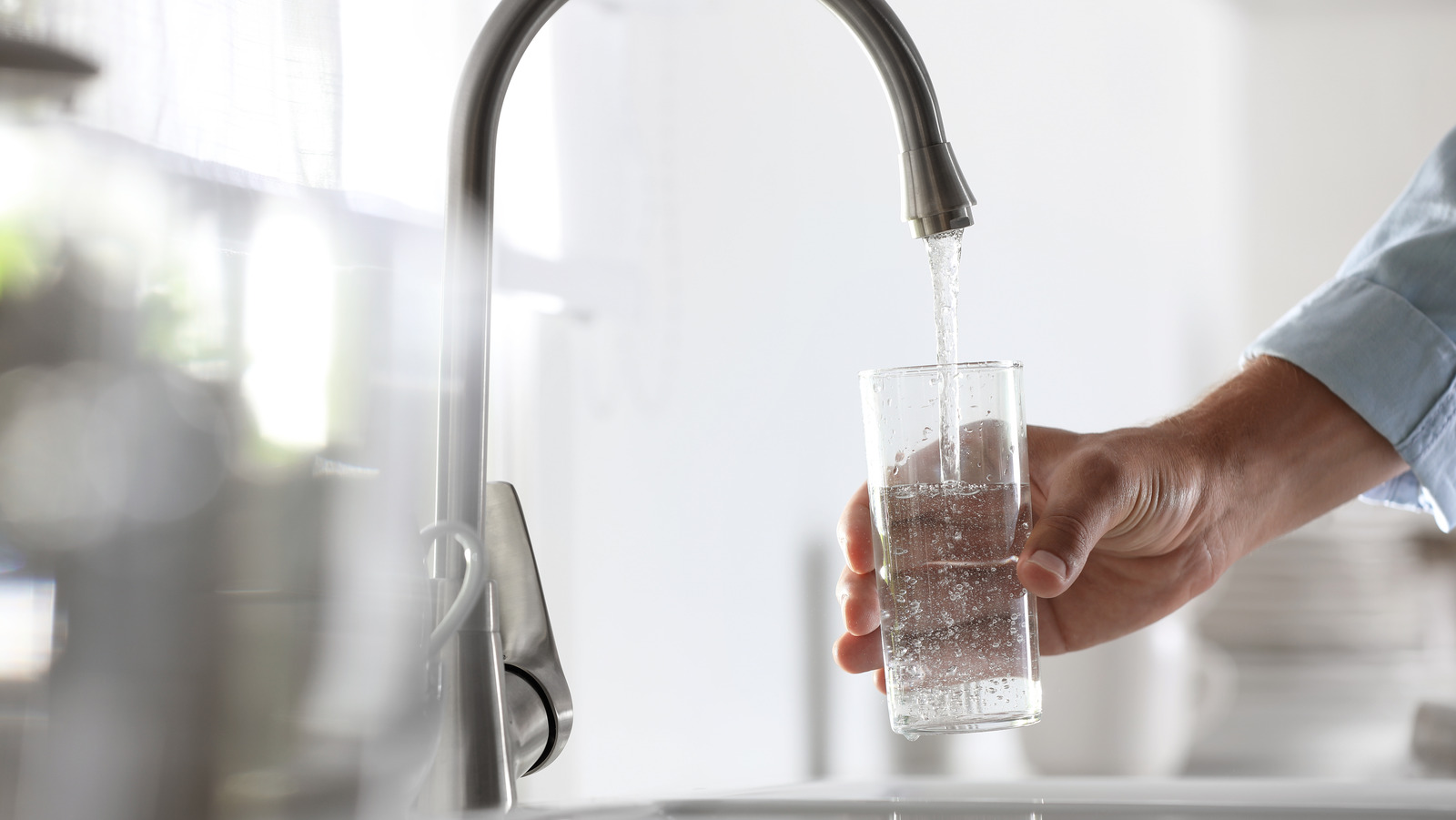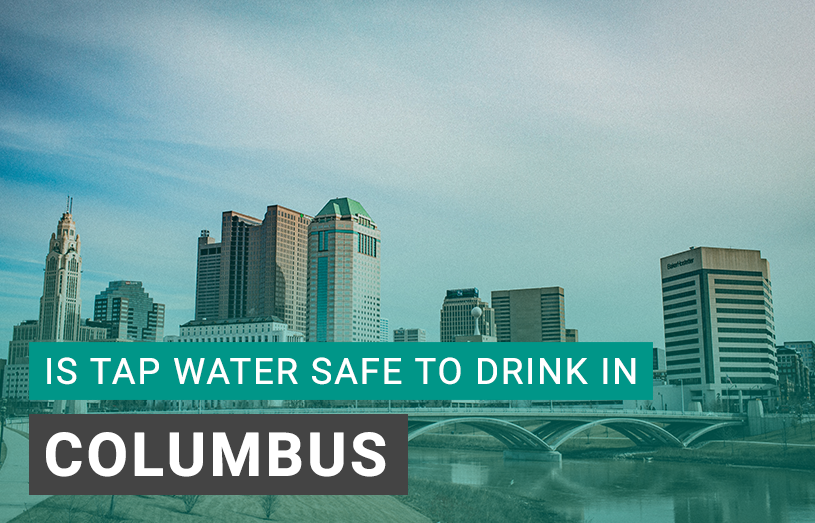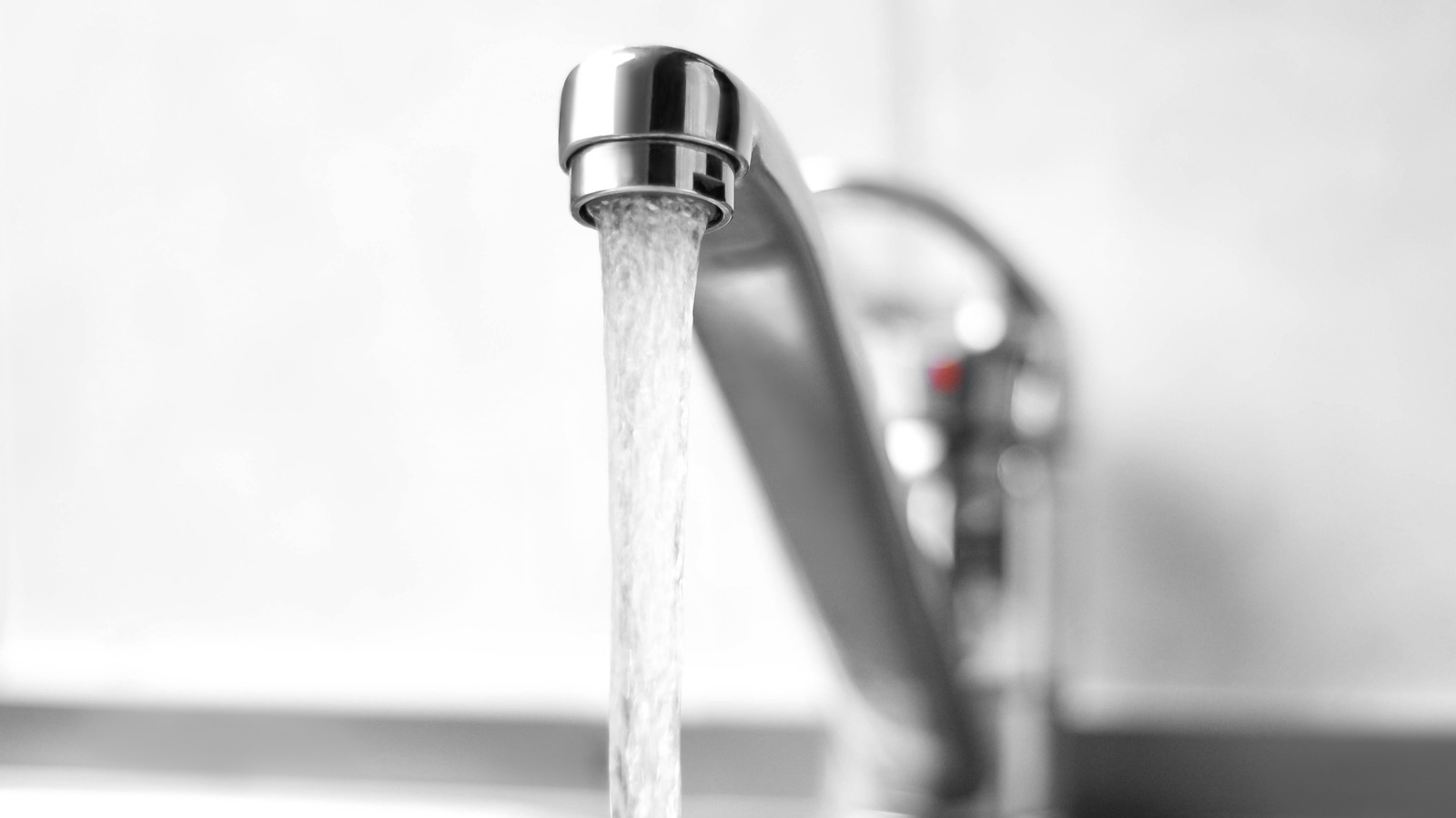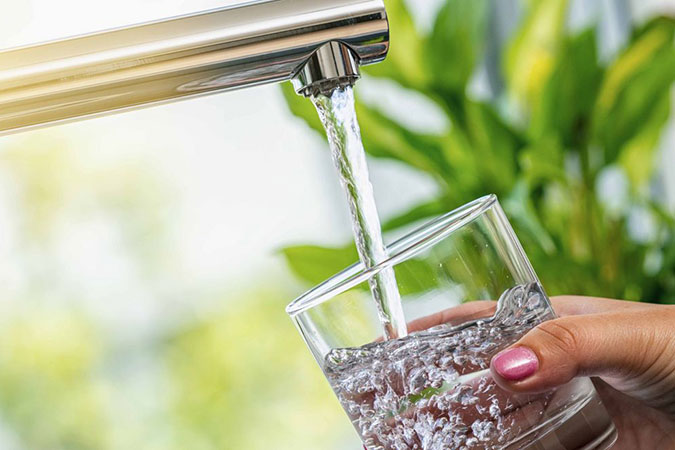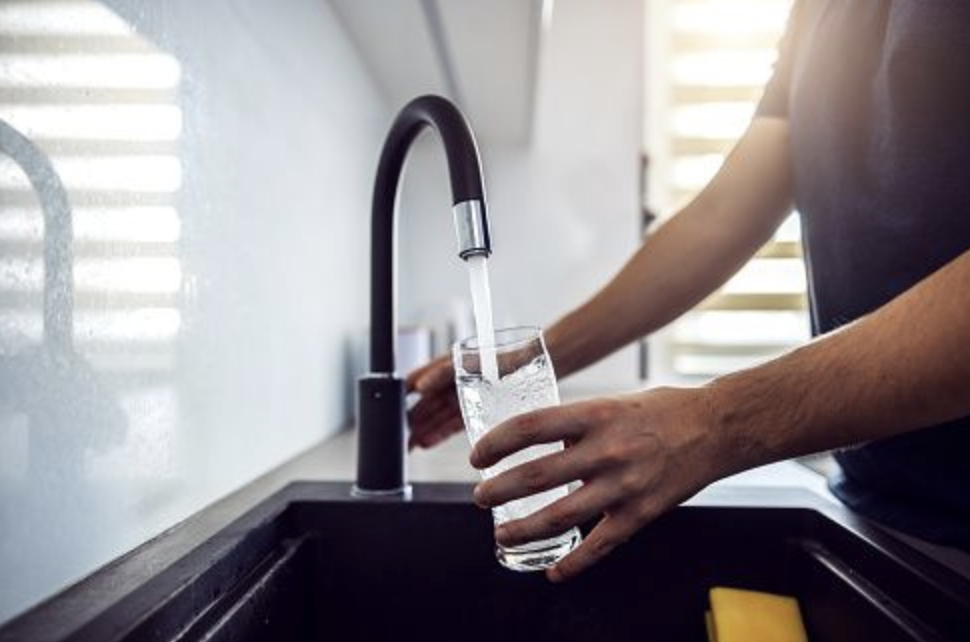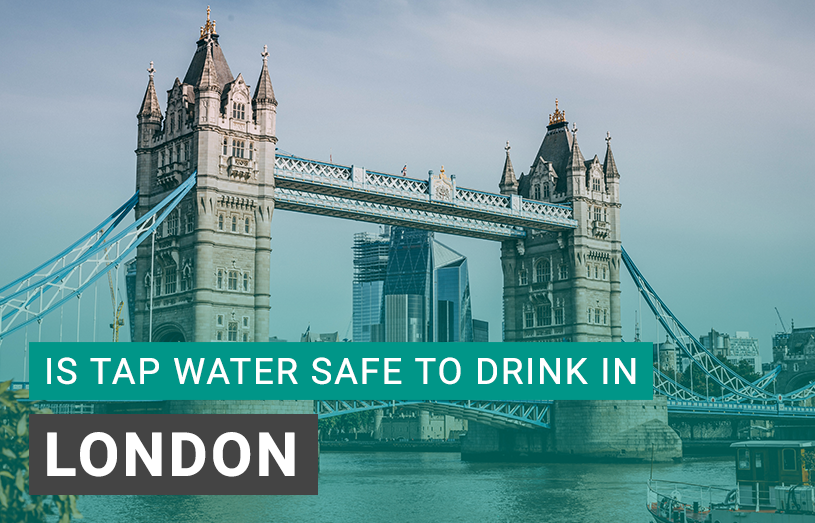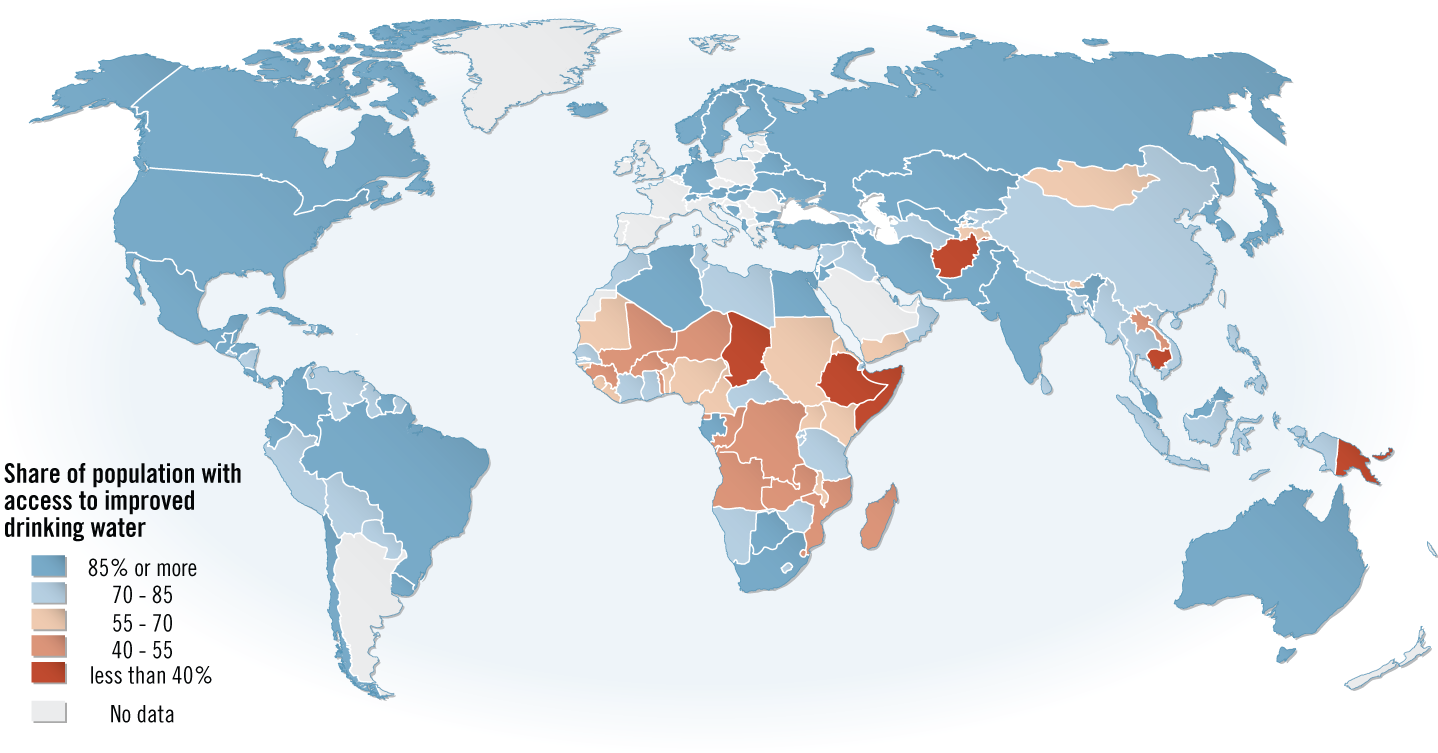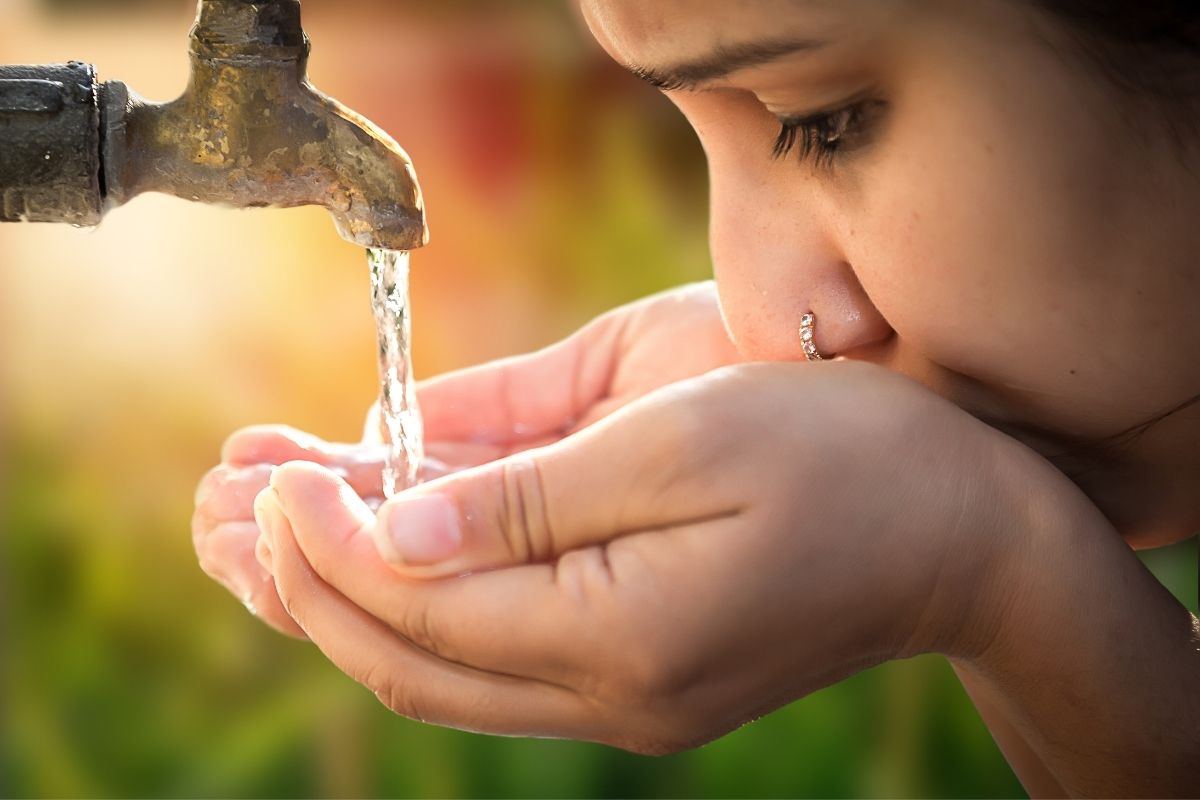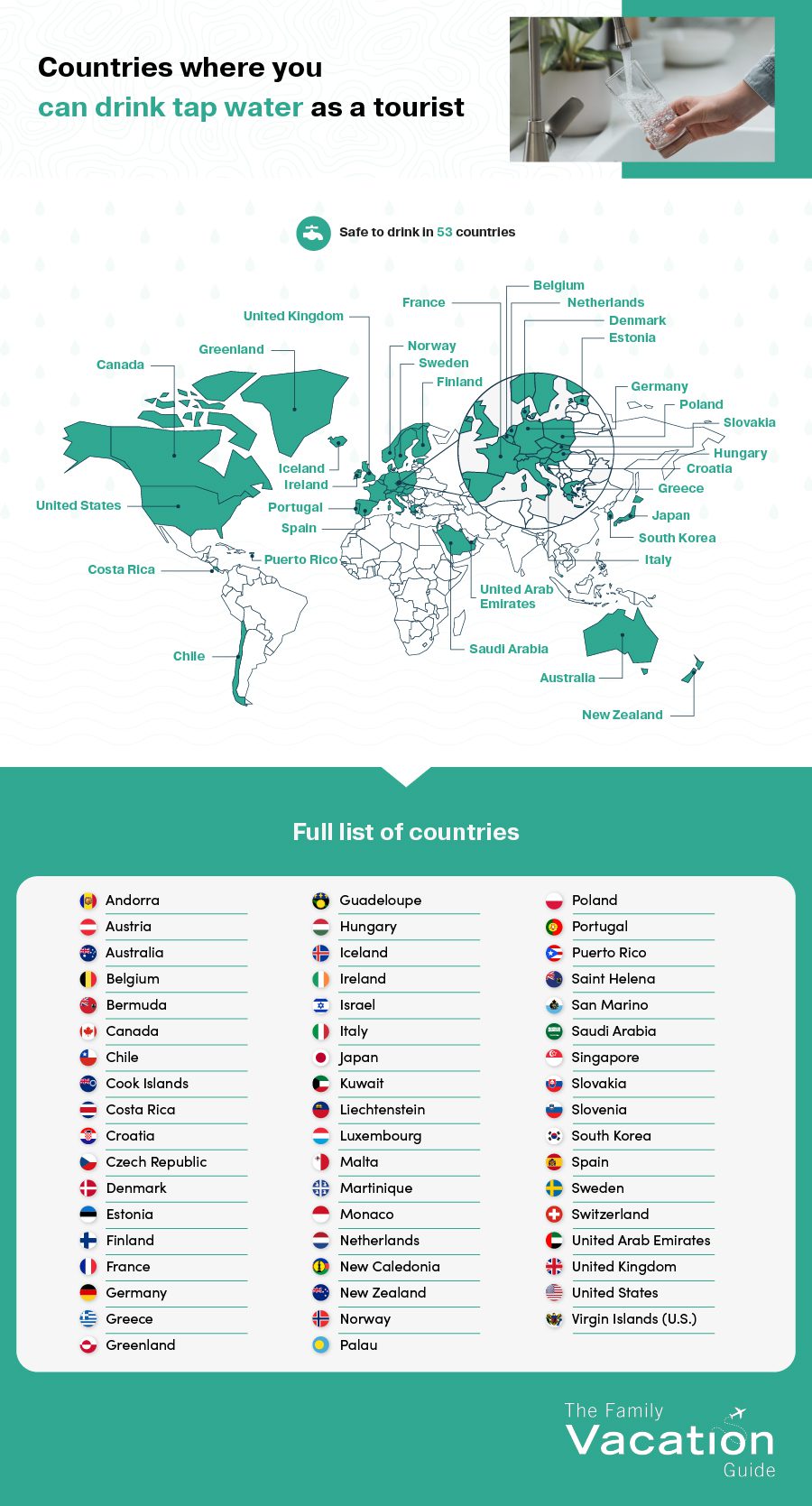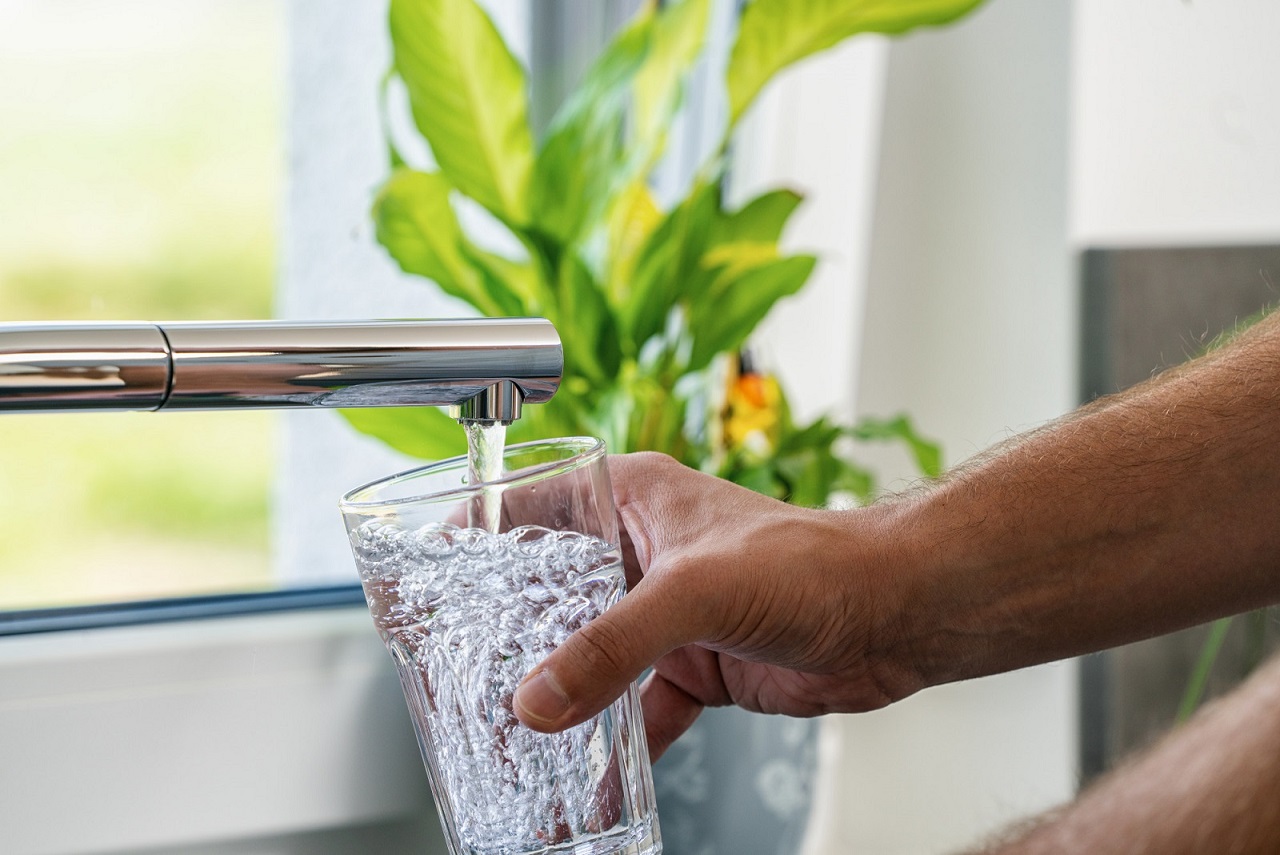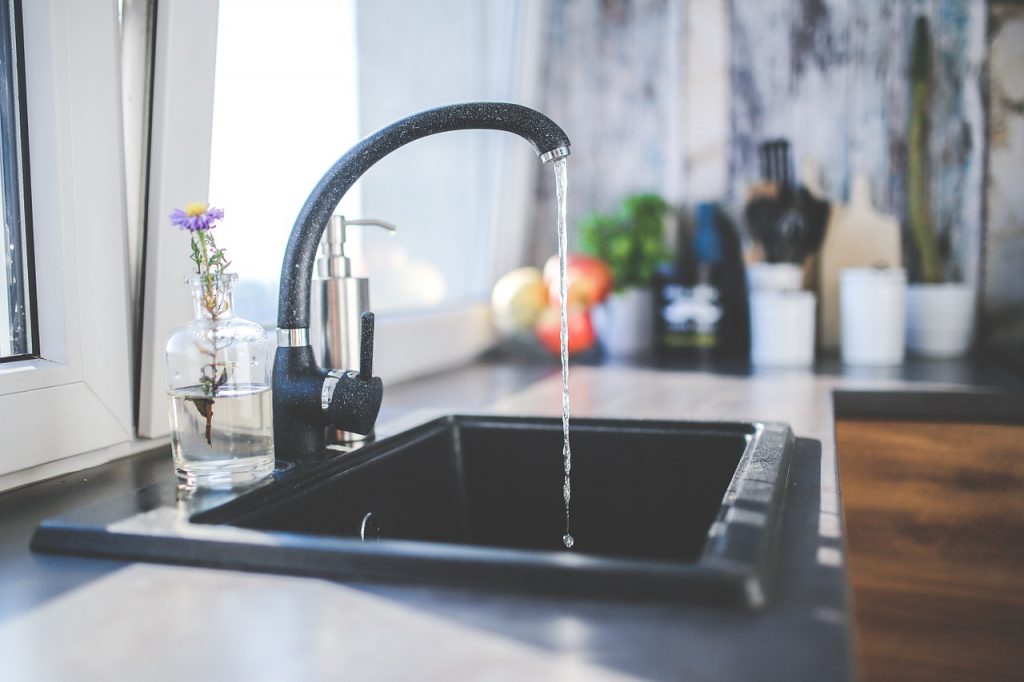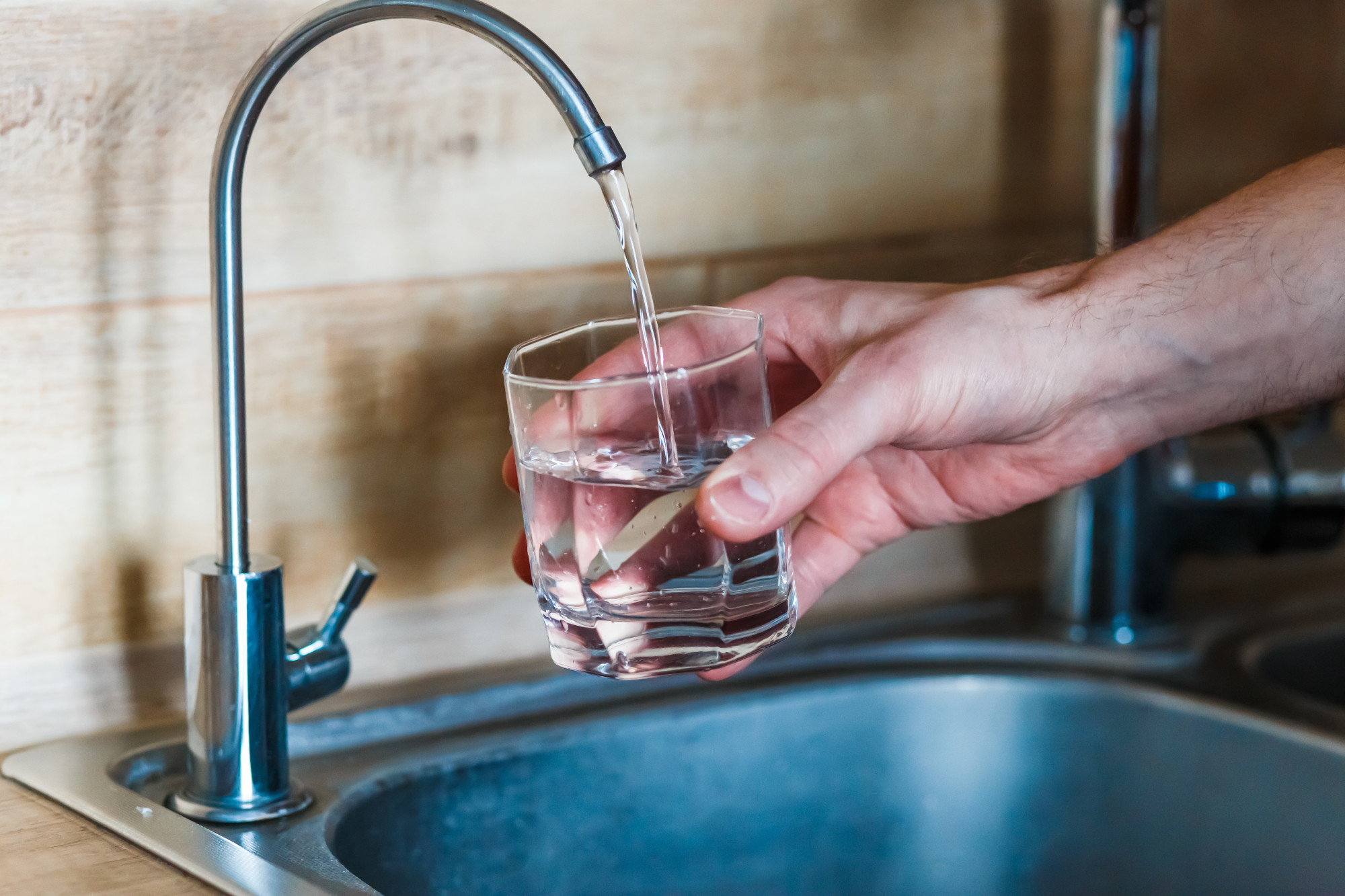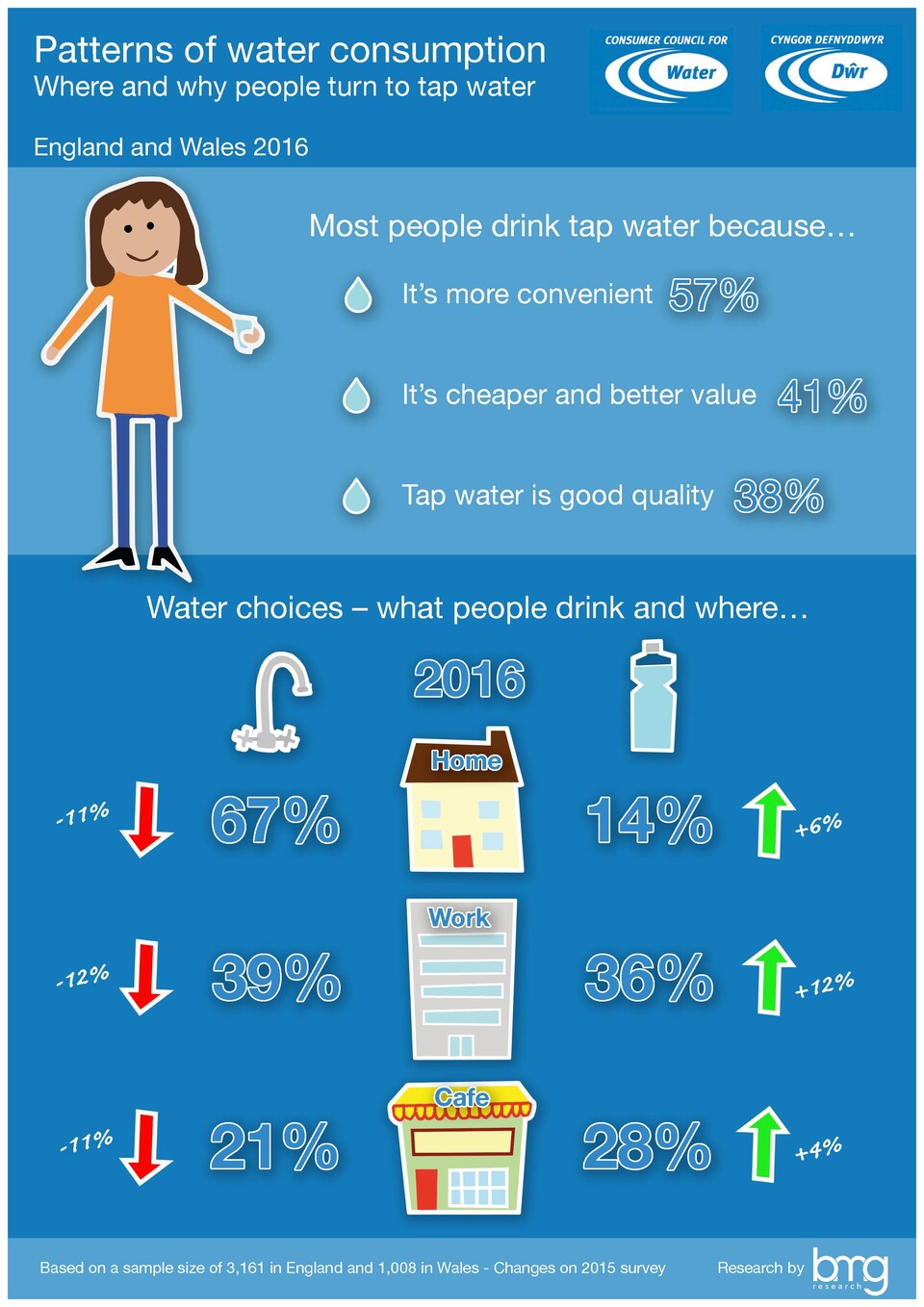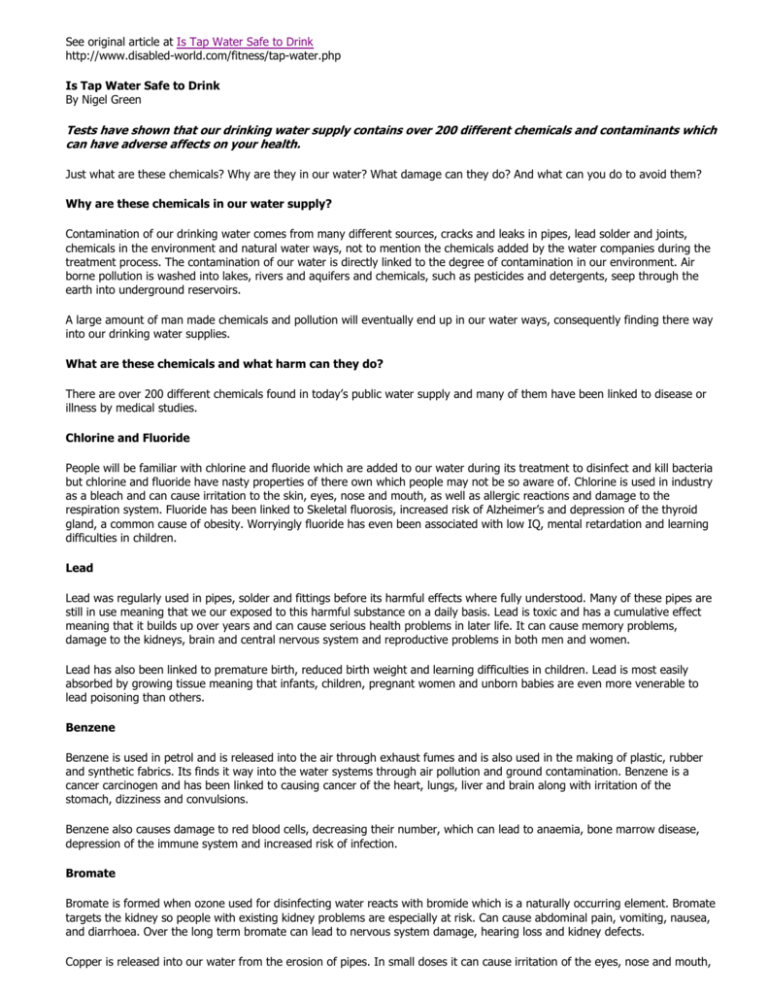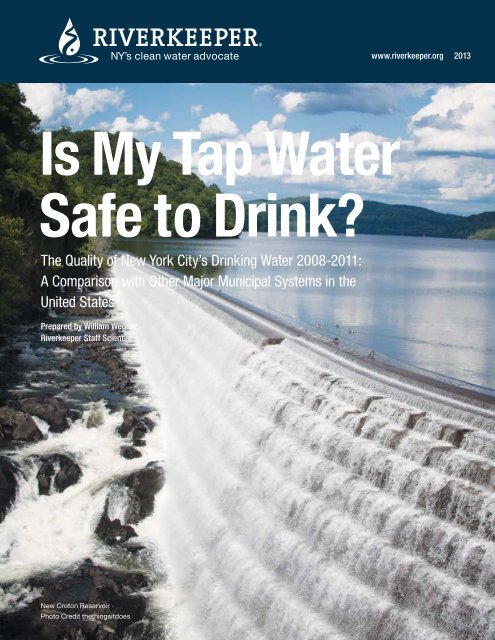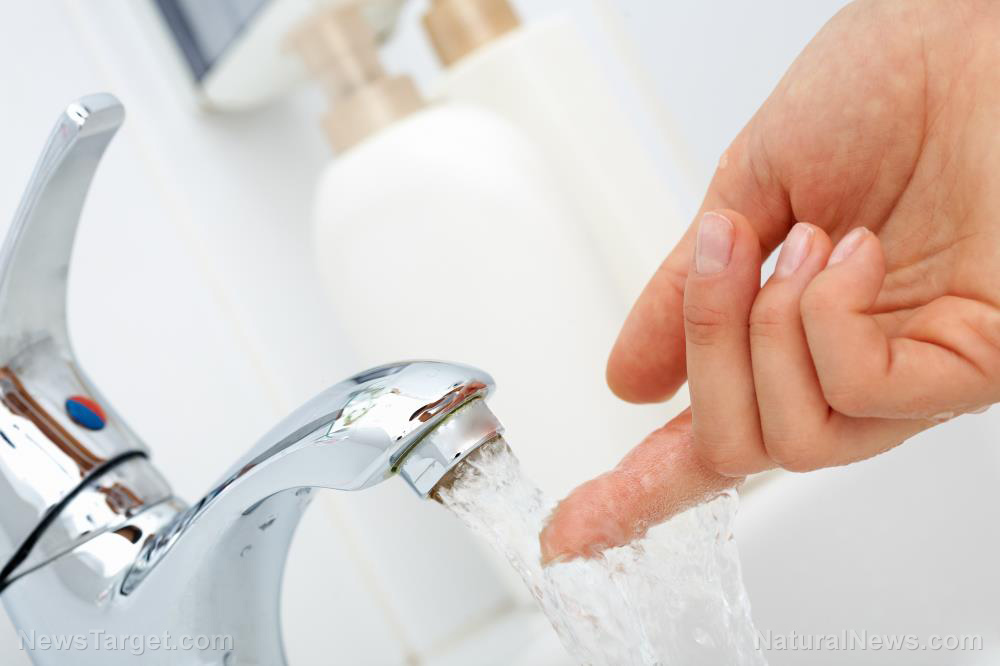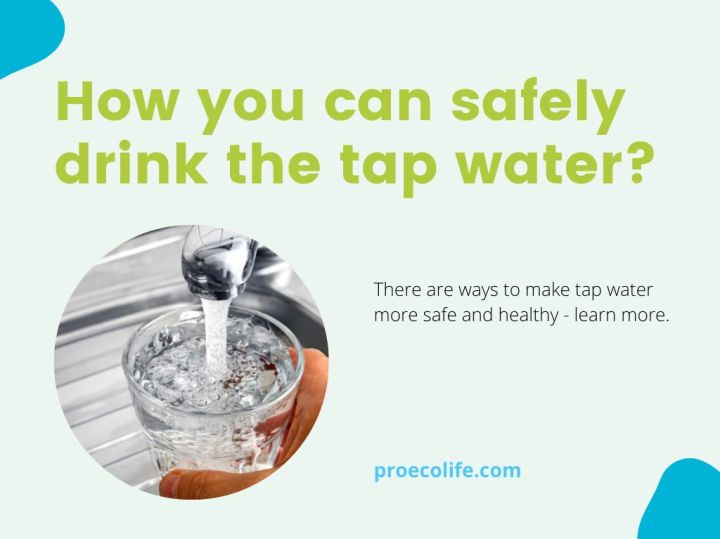1. Water Quality: Is Tap Water Safe to Drink?
Drinking water is an essential part of our daily lives. We rely on tap water for cooking, cleaning, and most importantly, hydration. But have you ever stopped to wonder about the quality of the water that comes out of your kitchen sink? Is tap water safe to drink? Let's dive into the facts and explore the truth behind the safety of tap water.
2. The Truth About Tap Water Quality
There is a common misconception that tap water is not safe to drink, and that bottled water is a better alternative. However, the truth is that tap water is highly regulated and monitored for safety by the Environmental Protection Agency (EPA) in the United States. This means that tap water must meet strict quality standards to be considered safe for consumption.
3. The Role of Water Treatment Plants
Before tap water reaches our homes, it goes through a series of treatment processes at water treatment plants. These processes include filtration, disinfection, and the addition of chemicals to remove harmful bacteria and contaminants. This ensures that the water we drink is safe and free from harmful substances.
4. The Importance of Regular Testing
Despite the rigorous treatment processes, it's crucial to regularly test tap water for any potential contaminants. Water treatment plants are required to conduct regular tests, but it's also recommended to have your tap water tested at least once a year to ensure its safety.
5. Common Contaminants in Tap Water
While tap water is generally safe to drink, there are some common contaminants that can make their way into the water supply. These include lead, chlorine, and fluoride. However, the levels of these contaminants are closely monitored and kept below the maximum allowable limits to ensure our safety.
6. The Role of Plumbing in Water Quality
The quality of tap water can also be affected by the plumbing in our homes. Old, corroded pipes can introduce harmful substances into the water supply. It's important to regularly maintain and replace old plumbing to ensure the safety of our tap water.
7. The Benefits of Drinking Tap Water
Aside from being safe to drink, tap water has many benefits. It's more affordable and environmentally friendly than bottled water, and it also contains essential minerals that our bodies need. By drinking tap water, we are also supporting our local water infrastructure.
8. The Importance of Proper Storage
How we store our tap water can also affect its quality. It's essential to use clean, airtight containers and to keep them in a cool, dark place to prevent the growth of bacteria. It's also recommended to regularly clean and replace water filters if using a filtration system.
9. Addressing Concerns About Tap Water
Despite the facts, many people still have concerns about the safety of tap water. Some may prefer the taste of bottled water, while others may worry about the potential risks of contaminants. If you have any concerns, it's best to consult with your local water provider and have your tap water tested.
10. The Verdict: Is Tap Water Safe to Drink?
After exploring the facts, it's safe to say that tap water is generally safe to drink. The EPA has strict regulations in place to ensure the safety of our tap water, and it's also important to take proper precautions such as regular testing and proper storage. So the next time you reach for a glass of water from your kitchen sink, rest assured that you're making a safe and healthy choice.
Is Water from Kitchen Sink Safe to Drink: The Importance of Proper Filtration

The Risks of Drinking Unfiltered Water
 When it comes to the safety of our drinking water, many of us may take it for granted. We turn on the tap and assume that the water coming out is clean and safe for consumption. However, this may not always be the case, especially when it comes to water from the kitchen sink.
While tap water is treated to remove harmful bacteria and chemicals, it can still contain trace amounts of contaminants such as lead, pesticides, and chlorine. These contaminants can have adverse effects on our health, ranging from mild stomach discomfort to more serious issues like organ damage. This is why it is crucial to properly filter the water from our kitchen sink before drinking it.
When it comes to the safety of our drinking water, many of us may take it for granted. We turn on the tap and assume that the water coming out is clean and safe for consumption. However, this may not always be the case, especially when it comes to water from the kitchen sink.
While tap water is treated to remove harmful bacteria and chemicals, it can still contain trace amounts of contaminants such as lead, pesticides, and chlorine. These contaminants can have adverse effects on our health, ranging from mild stomach discomfort to more serious issues like organ damage. This is why it is crucial to properly filter the water from our kitchen sink before drinking it.
The Importance of Proper Filtration
:max_bytes(150000):strip_icc()/water-overflowing-in-kitchen-sink-200553937-001-5797e6335f9b58461f5a6736.jpg) Many people may opt for bottled water, thinking it is a safer alternative to tap water. However, bottled water is not always regulated and can be just as contaminated as tap water. Additionally, it is not environmentally friendly and can be costly in the long run.
The best solution is to invest in a high-quality water filtration system for your kitchen sink. This will ensure that all harmful contaminants are removed from your drinking water, making it safe for consumption. There are many options available, such as carbon filters, reverse osmosis systems, and UV filters, each with their own advantages and capabilities.
Many people may opt for bottled water, thinking it is a safer alternative to tap water. However, bottled water is not always regulated and can be just as contaminated as tap water. Additionally, it is not environmentally friendly and can be costly in the long run.
The best solution is to invest in a high-quality water filtration system for your kitchen sink. This will ensure that all harmful contaminants are removed from your drinking water, making it safe for consumption. There are many options available, such as carbon filters, reverse osmosis systems, and UV filters, each with their own advantages and capabilities.
Choosing the Right Filtration System
 When choosing a water filtration system for your kitchen sink, it is essential to consider your specific needs and budget.
Carbon filters
, for example, are effective in removing chlorine and sediment, but they may not be as effective in removing heavy metals like lead.
Reverse osmosis systems
, on the other hand, are more expensive but can remove a wider range of contaminants.
It is also crucial to regularly maintain and replace the filters in your filtration system to ensure its effectiveness. This will not only ensure that your drinking water is safe but also help prolong the lifespan of your system.
In conclusion, while tap water may undergo treatment, it is still important to properly filter the water from your kitchen sink before consuming it. Investing in a high-quality water filtration system is the best way to ensure that you and your family are drinking clean and safe water. So, the next time you go to grab a glass of water from your kitchen sink, make sure it is properly filtered for your health and well-being.
When choosing a water filtration system for your kitchen sink, it is essential to consider your specific needs and budget.
Carbon filters
, for example, are effective in removing chlorine and sediment, but they may not be as effective in removing heavy metals like lead.
Reverse osmosis systems
, on the other hand, are more expensive but can remove a wider range of contaminants.
It is also crucial to regularly maintain and replace the filters in your filtration system to ensure its effectiveness. This will not only ensure that your drinking water is safe but also help prolong the lifespan of your system.
In conclusion, while tap water may undergo treatment, it is still important to properly filter the water from your kitchen sink before consuming it. Investing in a high-quality water filtration system is the best way to ensure that you and your family are drinking clean and safe water. So, the next time you go to grab a glass of water from your kitchen sink, make sure it is properly filtered for your health and well-being.



